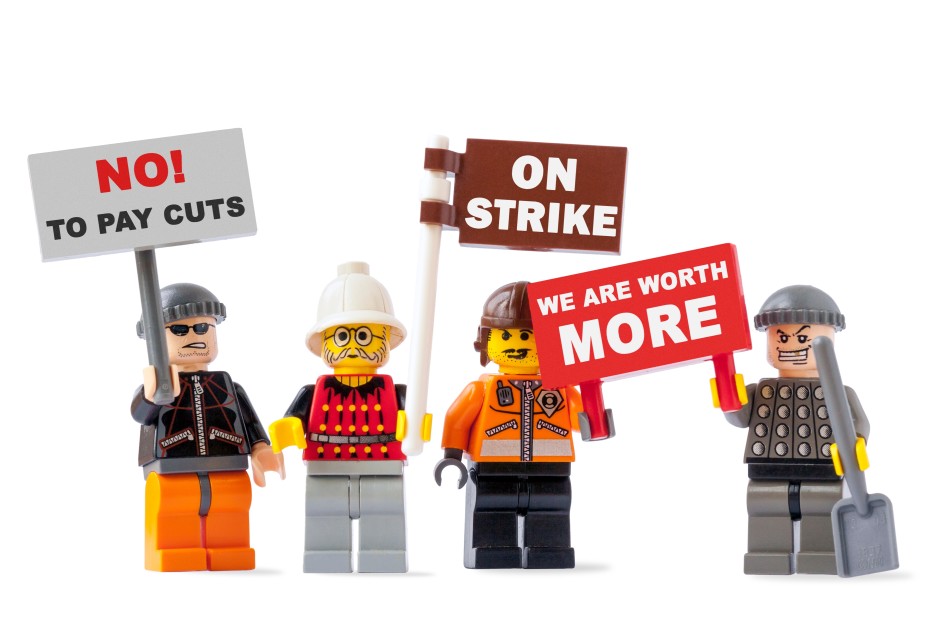Labour shortages and increased union activity are leading to pay rises.
Are labour unions making a comeback? So many workers downed tools in America last month that newspapers have been referring to it as ‘Striketober’. At the same time, opinion polls suggest public opinion of trade unions is higher than it has been in decades. Meanwhile, in the UK, membership numbers have been ticking upwards for years.
There are disadvantages to unions. Higher wage costs are often passed along to customers via price rises, and strikes can disrupt people’s lives in significant ways. Companies can find it harder to get rid of workers who are bad at their job, and individual members may dislike going along with decisions they do not agree with. But more and more British and American citizens may be becoming convinced that the pros outweigh the cons. Unions are reflecting a popular opinion when they say it's time for companies to reward the hard work and sacrifices they required of their staff during the pandemic. If these people see businesses respond to the current union activity with meaningful concessions it may encourage non-unionised workers to try a similar route.
Maybe. Or maybe not. While as a general rule workers will always want better pay, benefits and working conditions than their employers would like to give them (because all that stuff eats into their profit margins), unions aren't the only way for the two parties to negotiate.The same premise that strikes are built on - refusing to exchange your labour unless your conditions are met - is also available to individual workers in the sense that they can resign from a job they don't like, or turn down a job offer that doesn't meet their expectations.
Now, getting your way as an individual worker is much easier if you have skills that are (1) particularly in-demand, and (2) particularly rare. In-demand, because the more a company needs something the more they’ll be willing to pay for it. Rare, because otherwise your bargaining position is undercut by the fact you are competing against many other workers who may be willing to offer the company equivalent labour for cheaper.
This combination means actually having the power to favourably negotiate your employment terms as an individual is usually limited to a minority of people. Moreover, you’re far more likely to belong to that group if you’re already higher up the socioeconomic ladder. Developing those high-value, niche skills often requires having access to expensive resources, such as degrees from top universities. Plus, having the power to turn down work you don't like often relies on you having other ways to support yourself short-term (savings, say).
However, these ideas have been shaken up recently, because of mass labour shortages in low-paid sectors such as retail and hospitality. These types of jobs always met the ‘in-demand’ requirement. After all, you’d struggle to run a profitable bar without bartenders, or sell your shop goods without checkout workers. But for the first time in many years people who are willing to be those bartenders or checkout workers are becoming rarer. That means company owners are having to make concessions to get new staff on board (and old staff to stick around). And so wages for these types of roles are currently going up in countries like the UK and the USA.
There’s no guarantee that this power balance will remain tipped towards workers, of course. Indeed, some people think the pendulum will swing back once the pandemic abates, on the assumption that Covid is the main reason behind a lot of the new mass unwillingness to work these low-paid jobs; because of fear of catching the virus, say, or an inability to find reliable childcare during school closures.
This is why many people still think the only way people without a lot of socioeconomic power can reliably hold sway over their bosses is via collective bargaining, i.e. unionising. After all, from a pay-setting perspective the absolute number of bartenders is irrelevant if all of them refuse to work for less than a specific wage.
Read our explainer on: power in the workplace.

